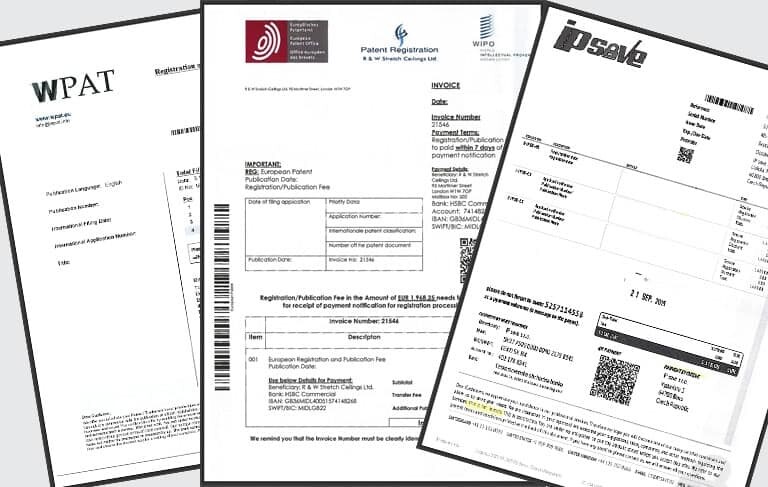Fraudulent Invoices

A big trap for patent and PCT Applicants: Fraudulent Invoices
Several inventors recently contacted the International Bureau of WIPO having paid these “invoices” for they were unaware of this unscrupulous practice and fell victim to this fraud.
Perpetrators of this fraud send “invoices” to applicants inviting them to pay fees to register their published application in a database. These “invoices” successfully mislead some applicants, who pay the fees, believing they are related to the processing of their international application. Whatever registration services might be offered in such invoices, they bear no connection to WIPO and are unrelated to the processing of international applications under the PCT.
An example of a fraudulent invoice received by applicants who have filed an international patent application under the Patent Cooperation Treaty (PCT) is represented:

The authors of this fakery even had the gall to include a bogus warning about other requests for payment, to give them an air of legitimacy! Many more examples of such patent-related invitations can be found here:
http://www.wipo.int/pct/en/warning/pct_warning.html
If you receive a notice like this or one which raises any doubts in your mind:
- do not pay it!
- contact your attorney; for invoices relating to PCT applications, you can check WIPO’s website (http://www.wipo.int/pct/en/warning/pct_warning.html) to see whether similar notices have been received by other PCT users (this page also has links to warnings posted by certain national and regional patent and trademark offices);
- send a copy of the notification to WIPO at legal[a]wipo.int so it can be added to the collection;
- alert all colleagues who might receive such notices;
- make a complaint to competent government authorities and/or consumer protection groups.
These invoices—which are designed intentionally to look like real invoices from an official source—have nothing to do with the processing of your patent applications or trademark registrations, and the services they purport to provide have no value beyond the services already provided by WIPO or your national or regional office. They are created by unscrupulous companies and individuals who are trying to defraud you into paying fees to them.
WIPO continues to raise awareness about these fraudulent schemes and work with governments to take action against those responsible.